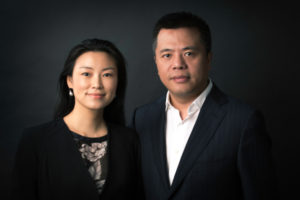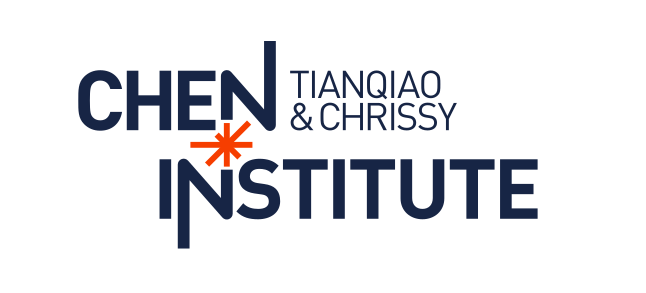Asia Philanthropy Circle members Tianqiao and Chrissy Chen’s institute has just launched a new neuroscience initiative with the prestigious Caltech. With a funding gift of USD115 million, the programme kick starts the Chen’s venture into neuro research, treatment and discovery. However, it is also the culmination of a 2-year long journey of learning and finally deciding on their philanthropic strategy, goals and delivery methods.
 Like the thoughtful and decisive businessmen and investors that they are, the Chens have brought their acumen and precision into their philanthropy. From our conversation with Chrissy, we realised that what set them apart as enlightened philanthropists was their emphasis and understanding of the importance of patience and flexibility; and the knowledge from the start that this was a journey with long-term goals and outcomes. Their investment of time and resources to get things right before diving into the work is the hallmark of strategic philanthropy and thoughtful giving.
Like the thoughtful and decisive businessmen and investors that they are, the Chens have brought their acumen and precision into their philanthropy. From our conversation with Chrissy, we realised that what set them apart as enlightened philanthropists was their emphasis and understanding of the importance of patience and flexibility; and the knowledge from the start that this was a journey with long-term goals and outcomes. Their investment of time and resources to get things right before diving into the work is the hallmark of strategic philanthropy and thoughtful giving.
We asked Chrissy to share her thoughts about their motivations and expectations.
APC: Beyond the USD115 million grant to Caltech, we understand that a total of USD$1bn has been committed to the field of brain research – what are the future/other plans?
Chrissy: Our vision for brain research is to truly create an interdisciplinary and holistic approach to understanding the subject. This includes funding research programmes, and nurturing research talents at the forefront of their fields. In the future, we will also design and provide bespoke support, such as via endowed institutes, professorships, or topic-specific programmes to support early career scientists and researchers.
The currently planned budget is carved out into supporting two areas of growth – collaborative growth and organic growth. Collaborative growth is partnerships like the one we announced with Caltech, where we support university and research institutions to help them achieve scientific breakthroughs, giving their current research ambitions a lift. Caltech is a good example. They are a well-respected technical university looking for some extra height in their brain research endeavor. The icing on the cake was their very compatible vision with the Chen Institute. In 2017, we will continue to explore opportunities with other top global universities, and seek ways to deepen different aspects of our brain research programs, and create different collaboration models.
A key component of our brain research programme is to build an international campus where global scientists and researchers (including those from China) can work alongside like-minded scientists. This is what we consider as organic growth. As we continue to expand our philanthropic plans in brain research, that expansion could potentially take us on a path of widening our capabilities. This could include creating our own academic institution and facilities under the direct management of the Tianqiao and Chrissy Chen Institute. We very much look up to organisations like HMMI (Howard Hughes Medical Institute) and Rockefeller University, aspiring to model ourselves after these niche but impactful organizations.
With these endless future possibilities, we couldn’t be more excited!
APC: To commit such a large sum must have taken a lot of planning and consideration. What was your process of research and implementation like?
Chrissy: We took a top down approach to this – knowing what we wanted to do, before how we went about doing it.
We officially started the journey two years ago, meeting scientists, researchers, academics, thinkers and philosophers. This intense learning period was critical for us. We took a top-down approach to building this programme, from defining a vision, determining the focus areas, deciding on the approach, to designing the programmes, and determining the right kind of partners for our vision. This is a complex and long-term commitment, and we are well aware that it takes a lot more resources than the Chen Institute can provide, so we want to use our story as example, bringing in other philanthropists to join our efforts.
Truthfully, we’ve been passionate about supporting brain research for a long time. The two-year cycle gave us deeper insights on how to tackle this complex project. For example, we learnt how to consider different ways to designing donation and endowment structures. After the fact-finding phase, we began to build a framework for the programme, met with more universities and institutions to investigate their strengths and interest, before we decided on the first batch of beneficiaries in the past year. This is still an ongoing process; we continue to converse with other global universities and research institutions to find fitting partnerships.
APC: Were there any lessons that you encountered along the way that you would like to share with fellow philanthropists?
Chrissy: We went into this knowing there were two major challenges to face: a tremendous amount of investment, and a long-term view in achieving results. We also benefitted from the great advice and insights from our friends, mentors (including organisations like APC) and academic leaders.
While we are not new to philanthropic work, we had to learn the various components on how to execute a large scale programme like this. Three key qualities that I think are critical to philanthropic work are: having a vision, being patient and practicing flexibility.
Vision is the key to taking that important first step, setting your path and goals, even when things get rough. This is where patience comes in; we have to realise this is a long journey through a very important discovery process (we often think, if we couldn’t solve the human brain mysteries in our lifetime, our kids will have to take over!), and we must take a long term view, setting practical and realistic expectations. Finally, being flexible is also crucial because the execution process will uncover challenges or mistakes, which is why you have to adapt with flexibility.
APC: What do you hope to achieve through the establishment of the institute and what is the ultimate goal of your philanthropy?
The institute will support brain research through an interdisciplinary approach that fosters cross-border research, and bringing together the brightest minds to focus on three key areas:
- brain discovery
- brain treatment
- brain development
The ability to shape and refine perception will help us better understand our world, be it through more targeted therapies to alleviate negative psychological states such as depression, or seamless brain-machine interfaces to enhance the utilisation of mental capacity and capabilities.
APC: Brain research is quite a niche field, is there a reason why you and Mr. Chen decided on this area? What drives your philanthropy?
Chrissy: Our experience in the Internet and entertainment industries showed us how technology effected people’s perception and behavior. For example, how different players produced different reactions to the success or suffering in their virtual worlds, we wanted to know why the same stimulus led to drastically different perceptions, causing us to be hijacked by our own emotions, hampering analytical abilities and judgments?
At the end of the day, we realised there was little understanding about how the brain processes and connects sensation, perception, cognition and action, and uncovering how the brain perceives, interprets, and interacts with the world would be so important in many ways. For example, it can shape groundbreaking industries like artificial intelligence, robotics, and virtual reality. It can play a critical role in addressing social issues like ageing and behavioral problems, and can even help answer many ultimate questions about life, its origin, purpose, and ending.
Driven by our intense curiosity, we thought brain research was too important a topic not to pay attention to. So we started on the two-year journey of discovery, culminating in this first step with Caltech.
For more information, please visit: www.cheninstitute.org

